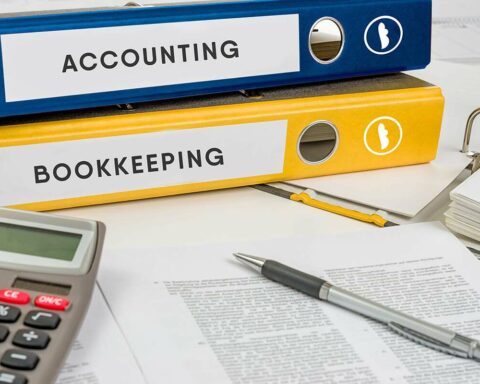Monetary management refers to the budgeting, saving, investing, spending, or capital usage of an individual or group. The term refers to investment management and portfolio management. Consumers have a massive range of resources and applications to manage their finances individually. If the investor increases their net worth, they get the service of financial advisors for professional money management. The financial advisor is mostly associated with private banking and brokerage services.
What are the basics of money management?
Some of the basics things that you should do to manage your money. Some important methods are listed below:
- Organize your Finance
- Earn More Spend Less
- Educate Yourself More
- Understand and take risk
Organize your Finance:
Organizing your finances is the best step for creating wealth. Credit cards, bank accounts, brokerage accounts, personal loans, and car loan accounts should be tracked. It would be best to buy a budgeting software that automatically tracks your budgets and keeps the on-time payment.
Earn More Spend Less:
The personal finance software tool is most important to track and budget your spending and take steps to achieve your long-term goals. Always you should maintain spending less than your earnings. Keep track of your finance and know how much you are spending. You will be able to control the money.
Educate Yourself More:
Try to educate yourself more about managing your money—budgeting software that allows to research that puts all your collective knowledge to gin something good. Try to read every financial periodical, book, and blog from the financial author. Clearly understand why you invest so accordingly you can plan and stick to it. You will not miss any excellent investment opportunities if you start gathering information periodically.
Understand and take a risk:
The understanding of return on investment is that the more your risk and your return. This is known as the risk-return trade-off. Investment in stocks and bonds, which as a higher rate of return, also has a higher risk. Investments like the certificates of deposits and the money market account like a lower risk of the lower returns.
What are examples of money management?
Managing money is essential to improving your finance. Some of the examples for managing the money are listed below:
- Budgeting
- Saving
- Honest Communication
- Financial Restraint
- Living within your means
Ten simple money management tips:
The ten simple tips may help you manage your money and improve your finance. Follow all these steps to achieve the financial goal for your lifetime. The ten simple tips are listed below:
- Pay for yourself
- Start creating a budget
- Try to use cash instead of cards
- Set the right financial goal
- Track where you spend money
- Diversify your investment
- Stay Away from the debt
- Create an emergency fund
- Know your Money Priorities
- Have a correct plan
Pay for yourself:
First, save money for yourself, which means you can put a part of it in your savings whenever you get a money credit. You can create a separate saving account to save part of the credit. You should completely forget about that major until your face some major fiscal crisis.
Start creating a budget:
Have a clear analysis of your spending and ensure how much money your account is for. Stick your budget according to the amount spent. A budget will help you plan all your expenses correctly without crossing the financial boundaries. Always as the clear analyses of the expenses and the income.
Try to use cash instead of cards:
Nowadays, most people have started using credit and debit cards. The main benefit of using this card is that you do not need to carry cash in your hand. But the truth is the card user will always spend more than the others. When you swipe a card, you do not know the experience of spending your hard-earned money. You do a favor of spending money using cash for your day-to-day expenses like eating out, buying some basic things, and shopping for clothes.
Set the right financial goal:
Always try to set the right financial goal. Money becomes useless unless you do not know to spend it right away. Plan what you want to do with the money and how you should spend it. You should call these things; otherwise, all your money management efforts become useless. Decide what you are saving the money for, whether you want to buy a new house or a new car or want to enjoy the holiday. Set a goal and work towards the goal consistently.
Track where you spend money:
Suppose you want to know your overall spending habits. You should take the step of doing some financial forensics for yourself. When your analysis, you find that you are spending more, try to
reduce your unnecessary monthly expenses.
Take details of all your expenses in the credit card statements, housing and utility bills, and bank statements, including your ATM withdrawal and electronic payment records. You can calculate your monthly expense in an excel sheet or a traditional method of using pen and paper. You should separate the expense into categories and try to find where the bulk amount goes. From the next month try to reduce the bulk amount of spending.
Diversify your investment:
One of the best and the oldest method is diversifying your investment. Do not invest all your income in a single portfolio. Always ensure you diversify your investment by investing in different assets which suit your portfolio needs and financial goals. Money management works better when diversifying your investment.
Stay Away from the debt:
Avoid taking the loan unless necessary. Debt is easy to take and difficult to pay off. So, it is something you can buy using cash by dipping into your emergency fund. It is better to take the loan with a steady cash flow with consistent expenses.
Create an emergency fund:
Many people think that simply saving money is the end of monetary management. Remember, money management requires something higher than simply saving the money. The initial step is to save money and keep the different amounts as the emergency fund.
You need to save some money to buy a new car or house. The emergency fund is used in real crises like losing a job or medical emergencies.
Know your Money Priorities:
Before doing the budgeting, you should determine your priorities. It is an especially major step; you will not buy into the financial plan if you skip this step. It would help if you aligned your money goal with your money habits.
Have a correct plan:
You know how much you are earning and how much you spend. Stick a plan according to it. The best financial plan aligns with your priority and with your spending habits. If you find spending money on a gym membership, or yoga class necessary, you do not need to cut it.
Conclusion:
When you start analyzing and managing your finances, you should better understand where and how you spend your money in the initial steps. This site will help keep your expense within the budget and even increase your savings. With clear and good monetary management, you can also know how to control your money and achieve your long-term financial goal. Make a money management plan according to your monthly income and the necessary expenses.








